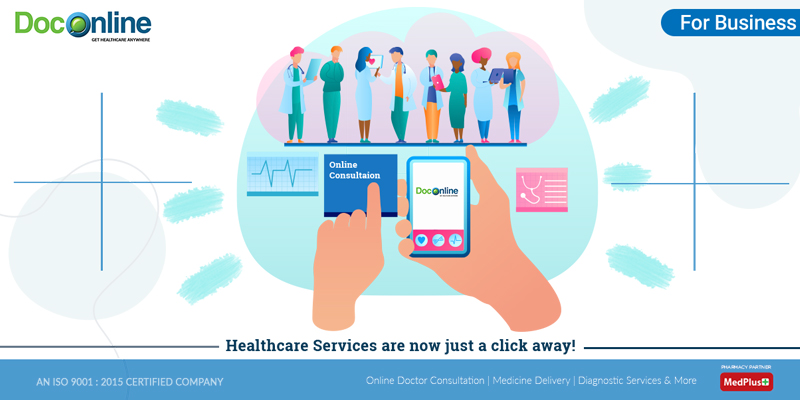Comprehending the Expense Savings of Subscription Based Healthcare for Families
Comprehending the Expense Savings of Subscription Based Healthcare for Families
Blog Article
The Surge of Subscription-Based Health Care and Its Influence on Individual Treatment
As healthcare develops, the subscription-based design is obtaining grip, promising to transform individual care by providing predictability and access. These versions, which bypass traditional insurance coverage, might redefine the patient-doctor dynamic, stressing personalized and preventive care. Yet, as with any advancement, they present obstacles, particularly concerning fair access for all socioeconomic teams. The capacity for these designs to improve medical care shipment raises pressing questions concerning their lasting sustainability and inclusivity. Are these membership services the future of healthcare, or do they risk leaving at risk populaces behind? The complexities of this change warrant a more detailed evaluation.
Understanding Registration Healthcare Designs
Realizing the concept of membership health care designs includes checking out a transformative technique to medical solutions that highlights cost and accessibility. These designs, usually referred to as straight medical care (DPC) or attendant medicine, have emerged as cutting-edge alternatives to standard fee-for-service healthcare systems. Membership healthcare enables clients to pay a set monthly or annual charge for a specified collection of clinical solutions, which might consist of endless office sees, regular check-ups, and fundamental laboratory examinations, without the requirement for traditional insurance coverage payment.
The structure of subscription health care models is developed to enhance individual treatment by removing third-party payers and intricate billing codes, consequently lowering administrative burdens. Doctor can focus a lot more on individual treatment, promoting more powerful patient-provider connections. This design likewise promotes preventative care by encouraging routine sees, as the monetary challenge of per-visit fees is eliminated.
The membership design typically equips doctor to manage smaller sized person panels, permitting for more personalized treatment. It straightens monetary rewards with patient health and wellness results, as providers are inspired to keep client fulfillment and well-being. In general, comprehending membership medical care designs calls for identifying their prospective to improve exactly how treatment is delivered and accessed.
Advantages for Suppliers and clients

With a steady profits stream, healthcare experts can dedicate even more time to each patient, leading to a much more individualized and comprehensive treatment experience. The emphasis on precautionary treatment within subscription strategies can lead to better patient results and reduced long-lasting health care expenses.
Difficulties and Problems
While subscription-based healthcare designs present countless benefits, they likewise include a set of difficulties and worries that have to be dealt with. Ease of access remains a considerable problem, as these versions often target individuals that can manage monthly charges, potentially omitting low-income populaces. This elevates moral questions about equitable access to healthcare services. Additionally, the different nature of membership plans can cause complication among clients concerning protection specifics, potentially resulting in unmet assumptions or inadequate treatment.
Financial sustainability of subscription-based versions is one more problem. Companies have to stabilize the set revenue from registrations with the variable expenses of healthcare solutions, which may vary due to unexpected clinical requirements. This can create stress to restrict solutions or boost fees, possibly affecting client fulfillment and care quality.
In addition, regulative oversight of subscription-based healthcare models is still evolving. Addressing these challenges is crucial for the effective and equitable application of subscription-based healthcare.
Influence On Patient-Doctor Relationships
One substantial impact of subscription-based healthcare models on patient-doctor relationships is the possibility for boosted continuity and individualized treatment. By taking on a registration model, medical professionals can manage a smaller sized client panel, enabling more committed time with each person. This raised accessibility fosters a deeper understanding of a patient's case history, way of life, and preferences, enabling more tailored therapy strategies and treatments.

Nonetheless, it is necessary to acknowledge that while subscription-based versions might benefit those who can manage them, they could inadvertently expand health care variations. Patients who are unable to take part in these versions could experience decreased access to individualized care, possibly affecting their connections with medical care carriers. Therefore, while the membership design offers promising advantages for patient-doctor relationships, it additionally poses obstacles that require to be resolved to ensure see here equitable healthcare accessibility.
Future of Medical Care Accessibility

The function of innovation can not be forgotten in this makeover. Telemedicine systems and electronic health records promote smooth interaction between people and health care carriers, breaking down geographical and logistical obstacles. Additionally, developments in synthetic intelligence and information analytics can better customize medical treatment by anticipating patient demands and optimizing therapy plans.
Nonetheless, the future of healthcare gain access to additionally offers challenges, such as guaranteeing equity throughout various socio-economic groups. Policymakers and doctor should work together to link the electronic divide, guaranteeing that subscription-based versions stay budget-friendly and inclusive. As these systems mature, they hold try this web-site the assurance of making health care a lot more obtainable, reliable, and patient-centric.
Verdict
Subscription-based healthcare models are improving patient find care by providing a steady expense framework and improving accessibility. These versions reinforce patient-provider relationships with personalized care and regular visits, emphasizing preventative health and wellness. Despite these benefits, challenges such as access problems for low-income populations and the need for equitable healthcare services linger. The surge of subscription-based medical care encourages positive individual interaction, which has the prospective to boost client results and satisfaction, signifying a transformative shift in medical care delivery.
As health care develops, the subscription-based model is getting traction, promising to revolutionize individual treatment by offering predictability and access.Subscription-based medical care designs use distinct advantages for both clients and companies, improving the total healthcare experience.As health care systems advance, the future of healthcare gain access to often pivots on the combination of cutting-edge models and modern technologies.Subscription-based medical care versions are improving individual care by supplying a secure price framework and improving access. The surge of subscription-based medical care encourages proactive individual involvement, which has the potential to improve individual outcomes and satisfaction, signaling a transformative shift in health care delivery.
Report this page